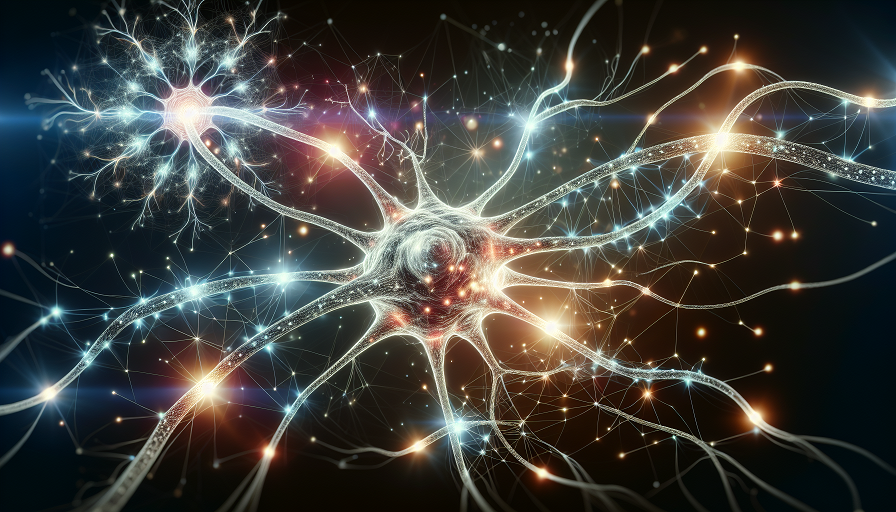
Emotional intelligence (EI) is more than a buzzword—it’s a critical skill for navigating life’s complexities. At its core, EI is about understanding your emotions and those of others to build stronger connections, resolve conflicts, and foster empathy. But here’s the secret: emotional intelligence doesn’t develop in isolation. Building strong, meaningful relationships is one of the most effective ways to enhance EI.
Contents
- The Role of Relationships in Self-Awareness
- Empathy: The Heart of Emotional Intelligence
- Building Emotional Regulation Through Interactions
- Social Skills: Strengthening Connection and Influence
- Fostering Emotional Resilience Through Connection
- Integrating Brain Health into Emotional Growth
- The Transformative Power of Relationships
The Role of Relationships in Self-Awareness
Self-awareness, the foundation of emotional intelligence, is the ability to recognize and understand your emotions. Relationships act as a mirror, reflecting your behaviors, triggers, and blind spots.
Learning About Yourself Through Others
Have you ever been surprised by how you react to a close friend’s feedback? Relationships provide insight into how your emotions surface and how others perceive you. For example, if a friend points out that you shut down during disagreements, it’s an opportunity to explore that pattern and address it.
Identifying Emotional Triggers
Interactions with others often highlight emotional triggers. A disagreement with a partner or frustration at work can teach you what causes you to react defensively or emotionally. Recognizing these triggers is the first step toward managing them.
Practical Tip
Keep a journal to reflect on your interactions. Note when strong emotions arise and what triggered them. Over time, this practice helps you better understand your emotional patterns and improve self-awareness.
Empathy: The Heart of Emotional Intelligence
Empathy—the ability to understand and share the feelings of others—is a cornerstone of EI. Building strong relationships nurtures empathy, allowing you to connect on a deeper level.
Active Listening as a Pathway to Empathy
Genuine relationships require active listening. When you truly hear someone, without interrupting or forming a response in your head, you gain insight into their emotions and perspectives. For instance, listening to a friend share their struggles without judgment strengthens your bond and enhances your empathy.
Understanding Emotional Nuances
Close relationships expose you to a range of emotions—joy, frustration, sadness—and teach you how to navigate them. Recognizing the subtle differences between someone’s irritation and stress helps you respond appropriately.
Real-Life Application
Consider how empathy plays out in parenting. A parent who understands their child’s frustration over homework can provide support rather than punishment, fostering trust and emotional growth for both.
Building Emotional Regulation Through Interactions
Emotional regulation is the ability to manage your responses in a healthy way. Relationships, with their highs and lows, offer the perfect training ground for this skill.
Managing Conflict Constructively
Disagreements are inevitable in any relationship. How you handle them—whether you react impulsively or take a step back—affects both your emotional growth and the strength of the relationship. Learning to pause, breathe, and respond thoughtfully improves your ability to regulate emotions.
The Power of Boundaries
Healthy relationships involve setting and respecting boundaries. Whether it’s saying no to an unreasonable request or communicating your needs, boundaries teach you how to assert yourself without overreacting.
Practical Strategy
Practice the “name it to tame it” technique: when you feel overwhelmed in a relationship, name the emotion (“I’m feeling hurt” or “I’m frustrated”). This simple act helps you process the emotion and respond more calmly.
Social Skills: Strengthening Connection and Influence
Social skills, such as effective communication and conflict resolution, are key components of EI. Strong relationships provide a space to practice and refine these skills.
Improving Communication
Building relationships requires clear and compassionate communication. Whether it’s expressing gratitude or addressing a misunderstanding, every interaction is an opportunity to hone your social skills.
Learning to Resolve Conflict
Healthy relationships teach you that conflict doesn’t have to be destructive. Approaching disagreements with a collaborative mindset—focusing on solutions rather than blame—enhances your ability to navigate challenges in all areas of life.
Real-Life Example
Think of a workplace team that thrives on mutual respect and open communication. Members who have built strong relationships can address conflicts constructively, making the team more effective and cohesive.
Fostering Emotional Resilience Through Connection
Strong relationships act as a safety net, helping you bounce back from setbacks. This resilience is a vital aspect of emotional intelligence.
The Role of Support Systems
During challenging times, a supportive relationship provides comfort and perspective. Whether it’s a friend offering advice or a partner reminding you of your strengths, these connections bolster your emotional resilience.
Relationships often involve navigating challenges together, such as financial difficulties or health issues. These shared experiences teach you how to adapt, communicate, and support each other, strengthening your emotional resilience.
Practical Tip
Cultivate a gratitude practice focused on your relationships. Regularly acknowledging the support you receive reinforces the value of your connections and deepens emotional resilience.
Integrating Brain Health into Emotional Growth
Optimizing brain health can amplify your emotional intelligence. Supporting cognitive function with brain supplements, like nootropics, can enhance focus, empathy, and emotional regulation.
How Nootropics Support EI
Nootropics like L-theanine and ashwagandha promote relaxation and mental clarity, making it easier to engage in emotionally demanding conversations or navigate stressful situations.
Combining Practices for Growth
Pairing nootropics with mindfulness or active listening practices enhances their effectiveness. For example, taking a brain supplement before a challenging discussion can help you stay calm and present.
Practical Advice
Always consult a healthcare provider before incorporating nootropics into your routine. Combine them with relational strategies to maximize your growth in emotional intelligence.
The Transformative Power of Relationships
Building strong relationships is one of the most effective ways to enhance emotional intelligence. Through self-awareness, empathy, communication, and resilience, these connections provide a foundation for personal and emotional growth. By nurturing your relationships and supporting your brain health, you can create a life rich in understanding, connection, and emotional fulfillment.

